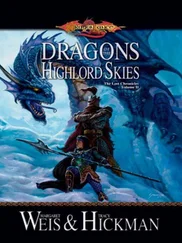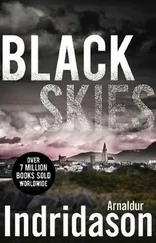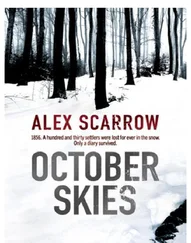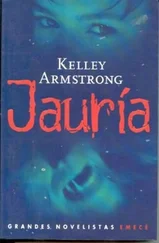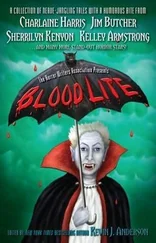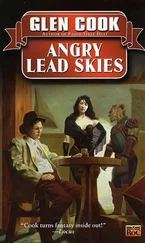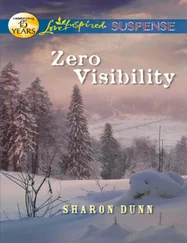For the past two weeks, William had been waiting and hoping. He hoped that at least something small would fall into his hole, and if he was lucky something bigger. He wondered about the hole at night when he was in bed. Sometimes the wind tricked him and he thought he heard a yelp or crying. On those nights he hardly slept, waiting for morning to come so he could go check out his catch, but there was never anything in the hole. A few nights earlier, he had an idea that came from watching one of the B&Bers fishing that day, something important he hadn’t thought about before: the hole needed bait. While no one was watching, he slipped the rest of his bits of beef from his dinner plate into the pocket of his shorts, and while his mom took her after-dinner walk he ran to throw them on the branches covering the hole. He’d done this every night for the past three nights: chicken, fish, and last night, pork.
William had dug a hole once before, when he was much younger. Actually, it was his father who had done most of the digging, with a small plastic shovel that came with the beach set his mother had bought for him. They had gone to Spanish Banks for the day. His mother was pregnant with his sister and lounged on the beach blanket his father had set up for her under a tree. William spent the entire day running back and forth between his parents at top speed, helping his father with the digging and pressing his ear up to his mother’s belly. His dad kept saying, “We must be on our way to China.”
That night his dad had to explain that China was actually very far away and that it would take years of digging to get there, that it was much quicker to fly or take a boat. But William was disappointed. He felt misled. Looking now at the speckled rocks half-buried in the sand, he tried to remember where his father was at this moment. Digging somewhere in New Brunswick, he guessed. He was fairly sure that was the last place. When they moved, they left all of his father’s clothes and books. His mom said it was easier for their father’s work if he left his things in the city.
“HI,” A SMALL BOY said.
William had been planning his attack should he find something in the hole, and he almost walked right into the kid. The boy was definitely one of the B&B guests and a couple of years younger than William — young enough that his parents still dressed him. William could tell by the way the boy’s shirt was tucked in and cinched with a miniature belt. His hair was carefully combed to the right side of his forehead. He was in gumboots, standing ankle-deep in a tidal pool, pushing around a large bit of Styrofoam with his foot.
“Where are you going?” the boy asked.
William was surprised by the question at first, but realized he must have been walking with purpose. “None of your business.”
“Can I come?” the boy asked, looking hopeful.
“No.” They stared at each other blankly.
“I made a boat. It was for the crabs to float on. But I can’t find any,” the boy said, motioning to the large piece of Styrofoam.
“Doesn’t look like much fun.”
“Nah, it’s not really. You want to help me sink it?”
William didn’t bother answering. He raised his stick and whacked the boat, sending bits of Styrofoam flying everywhere.
“Wait for me,” the boy yelled, running to the beach. “I need a stick, too.”
William paused mid-strike and waited for the boy to return with his stick. The two boys swung and swung until all they were hitting was water, and tiny Styrofoam islands floated all around them.
“It never sinks,” the boy said.
“Nope.” William brushed bits of Styrofoam out of his hair. “I gotta go.”
“Where are you going?”
“I told you already. It’s none of your business.” William started back on his course toward the rocks. The boy followed behind him for a ways, and when the boy didn’t turn back William swung around to face him. “I said don’t follow me.” The boy took a couple more steps and William realized maybe the boy was older than he thought, just small for his age. William raised his stick. “Don’t follow me or I’ll stab your neck.”
FROM THE TOP OF the rocky outcrop William had a good vantage point. He could see the boy walking back to the bed and breakfast — probably to tell on him. And he could see the hole. Something was different from the day before. The branches had shifted — only slightly, but he could tell they had definitely been moved. The meat was gone. Maybe the wind had moved the branches or a bird had tried to pick up the meat. Or maybe something had fallen in. He scrambled down the rock and ran toward the hole, sliding into a crouching position. As he leaned over, he accidentally kicked some sand over the edge. A faint shuffle and a sigh escaped from the depths of the trap. He sat back a moment and thought about the sound, listening for something else. His entire body shook with expectation and fear. His hole had trapped something; he didn’t know what to think. In his hurry he had dropped his stick behind him. He ran back to grab it and crouched down again, taking deep breaths. Slowly, with his eyes squinted in anticipation, he began to pull the branches away gently, one by one, setting them down in the sand behind him.
The creature at the bottom of the hole was shadowy, but he could still make it out: a dog. A small one, maybe a year old. It was grubby, a mutt like all the others, its brown-and-gold coat spotted with bits of rough skin from too much scratching. But it was still alive and that wasn’t what was supposed to happen. The dog was lying in a few inches of murky water. The ocean had seeped into the hole over the past week, bit by bit. The sand William had kicked in was scattered across the dog’s belly and on its face. Its front legs seemed to be bent back too far and it was blinking, trying to get the sand out of its eyes. When he had imagined the creature in the hole it was always dead. Most of the time it was a skeleton with bleached-white bones and he took the skull home and put it on the steps of the porch. Other times it was a bit messier and he had to do real man’s work. The pocketknife came out on these occasions, but the thing was always partly decomposed. It was never a broken thing. And it was never a crying dog. The dog had started to whimper and give little yelps. William walked the circumference of the hole and came to the conclusion that the dog was dying. He turned from it and ran.
Back over the rocks he slipped and fell and didn’t feel a thing, didn’t even check his knees for gashes. He could still hear the dog’s whimpers. He ran across the length of the beach and up the path to the B&B. He ran through the empty living room and into the dining room. There was a family sitting at the dining room table: a mother, a father, two girls, and the boy from the beach. They stared at him in stunned silence. The boy grimaced. William’s mother was laying out one of her many maps of the area.
“What have you done?” she gasped. Her face crumbled and William was sure his mother already knew everything.
“I’m sorry, I’m sorry,” William choked, out of breath from running.
“Oh, your knee. What a mess, come here. Let me have a look.”
William had forgotten his knee. He looked down. Bits of gravel were embedded in the pink flesh and the blood had spilled over the torn skin and trickled down his leg. It made him ill to look at his own blood and the tissue under his skin.
His mother pulled him into the kitchen, away from the guests. She picked him up and sat him on a stool, ran a clean cloth under the tap and pressed it to his knee. She carefully cleaned around the edges and patted the raw centre, gently picking out pebbles with a small pair of tweezers.
“Always into things.” She frowned, trying to look stern. She rinsed out the cloth and ran it up and down his leg, wiping off the blood. The cloth was cool. It felt wonderful to him. He wanted to take it for the dog.
Читать дальше



